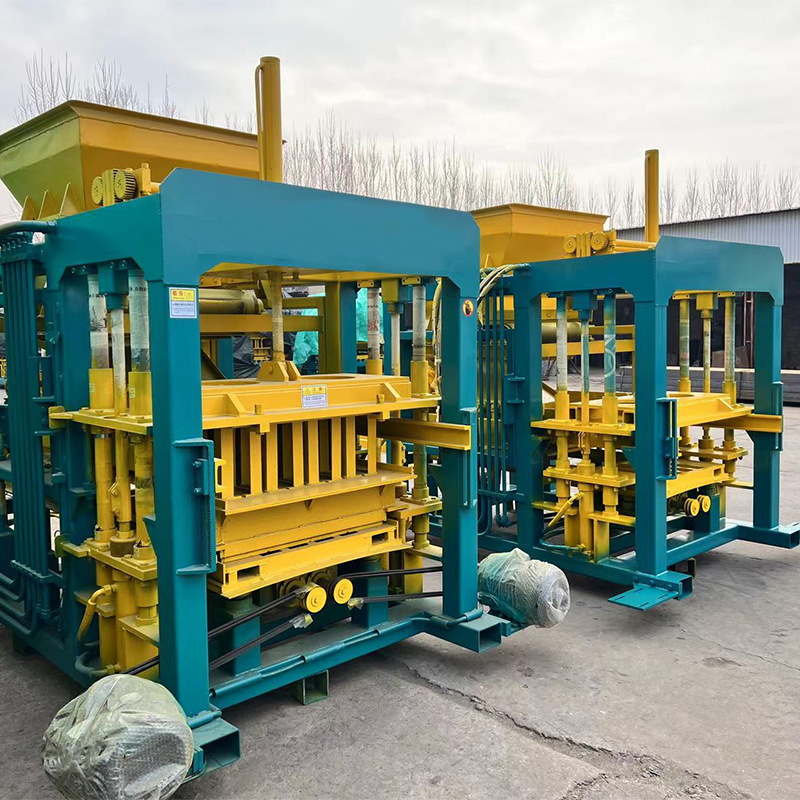
Image source Aiwei Block Machine
Innovations in Block Brick Machinery: Paving the Future of Construction
The construction industry has always been at the forefront of technological advancements. In recent years, one of the most notable areas of innovation has been in block brick machinery. These machines are responsible for producing the building blocks of our modern infrastructure, from residential homes to large-scale commercial buildings. In this article, we will explore the exciting innovations in block brick machinery and how they are paving the way for the future of construction.
1. The Evolution of Block Brick Machinery
Block brick machinery has come a long way since its inception. Initially, these machines were operated manually, requiring significant labor and time to produce bricks. However, technological advancements have revolutionized the industry, making it more efficient, cost-effective, and environmentally friendly.
2. Automation and Robotics
One of the most significant innovations in block brick machinery is the integration of automation and robotics. Modern block-making machines are equipped with sophisticated control systems that automate the entire brick production process. This reduces the need for human labor, lowers production costs, and increases overall efficiency.
Robotic arms and conveyor systems can handle the various stages of brick production, from raw material preparation to brick molding and stacking. Automation not only speeds up the process but also improves the precision and consistency of brick production, resulting in bricks that are of higher quality.
3. Eco-Friendly Materials and Production
The construction industry is under increasing pressure to reduce its environmental footprint. In response, the brick-making machinery sector has introduced innovations that allow for the use of eco-friendly materials and more sustainable production processes.
Recycled materials, such as crushed concrete and fly ash, are being used as aggregates in brick production. Additionally, some machines are designed to produce bricks using minimal water, reducing environmental impact.
4. Mobile and Compact Units
In the past, brick production was often limited to fixed plants that required a significant investment in infrastructure. However, the development of mobile and compact brick-making units has opened up new possibilities. These units are designed to be transported to construction sites, reducing transportation costs and making brick production more accessible in remote areas.
The ability to produce bricks on-site has a profound impact on construction efficiency, as it minimizes delays caused by transportation and allows for a continuous supply of bricks to the construction site.
5. Improved Energy Efficiency
Energy consumption has always been a concern in brick manufacturing. Modern block brick machinery is designed to be more energy-efficient, with features like automatic shut-off when not in use and optimized heating and cooling systems. These improvements not only reduce operational costs but also make the brick production process more environmentally friendly.
6. Digitalization and Data Analytics
The integration of digital technology and data analytics is another noteworthy innovation in block brick machinery. Many machines now come equipped with sensors that monitor the production process in real-time. This data is collected and analyzed to optimize production efficiency and quality control.
Furthermore, machine operators can remotely monitor and adjust production parameters, reducing the need for on-site personnel and minimizing downtime for maintenance and repairs.
7. Customization and Versatility
Modern block brick machinery offers greater customization options, allowing builders to produce bricks of different sizes, shapes, and designs. This flexibility is especially valuable in architectural projects where unique brickwork is a key feature of the design.
8. Artificial Intelligence and Machine Learning
Artificial intelligence (AI) and machine learning are finding their way into brick production. These technologies can predict maintenance needs, optimize energy consumption, and improve the overall efficiency of brick-making machines.
By analyzing large datasets from various sensors and operational parameters, AI can identify patterns and suggest changes to improve production quality and reduce waste.
9. Improved Safety
Safety is a paramount concern in the construction industry. Innovations in block brick machinery have also focused on improving safety standards. Machines are now equipped with enhanced safety features, including emergency stop mechanisms, protective barriers, and advanced warning systems.
10. Interconnectivity and IoT Integration
The Internet of Things (IoT) is becoming increasingly prevalent in the construction industry. Block brick machinery is no exception. IoT integration allows machines to communicate with each other and with central control systems, enabling real-time monitoring and remote troubleshooting. This connectivity streamlines operations and reduces downtime.
11. Cost-Effective Solutions
Innovations in block brick machinery have not only improved the efficiency and quality of brick production but also made the equipment more cost-effective. The reduced labor requirements, energy efficiency, and versatility of these machines translate into lower production costs and ultimately more affordable construction materials.
12. Future Challenges and Opportunities
As we look to the future, there are several challenges and opportunities in the realm of block brick machinery. Sustainability and environmental concerns will continue to drive innovation in the industry. Finding ways to reduce carbon emissions and minimize waste in brick production will be a priority.
Furthermore, the construction industry’s rapid growth in developing countries presents a significant market for block brick machinery. Innovations tailored to the specific needs and conditions of these regions will be vital.
In conclusion, the innovations in block brick machinery are revolutionizing the construction industry. Automation, eco-friendly materials, mobility, energy efficiency, digitalization, safety improvements, and cost-effective solutions are driving the sector forward. With continued research and development, the future of brick production looks bright, promising more sustainable, efficient, and versatile solutions for the construction industry. These innovations are paving the way for a future where construction is faster, more environmentally friendly, and increasingly accessible to a global market. As the demand for sustainable building materials and construction practices continues to rise, it’s likely that innovations in block brick machinery will remain at the forefront of the industry’s progress.
